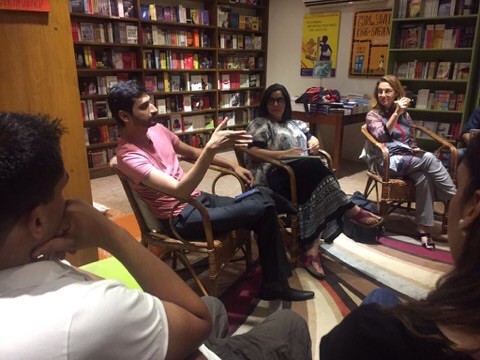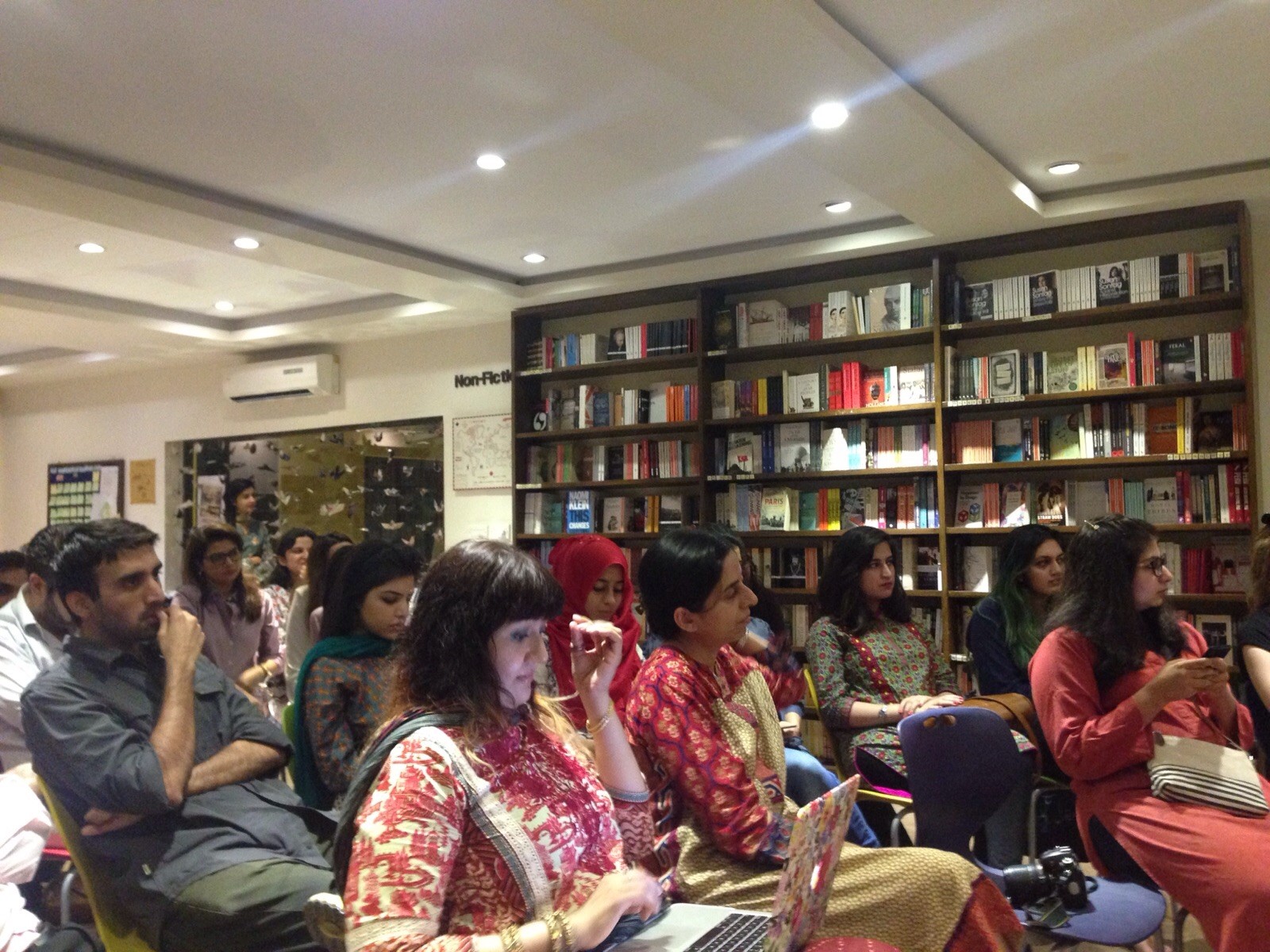September 6, 2015 - Comments Off on It’s time to end the culture of online misogyny!
It’s time to end the culture of online misogyny!
The Last Word bookshop and Digital Rights Foundation recently collaborated on a discussion session held at the Last Word in Lahore, Pakistan, to help develop an understanding – and increase awareness of – the dangers of unchecked online harassment. The session, “A Call To Action: Online Misogyny in Pakistan, and How to Combat it”, was announced in response to a disturbing rise in online misogyny and gender-based cyber-harassment. According to Pakistan's Federal Investigation Agency, 3,027 cases of cybercrime were reported in the the period between August 2014 and August 2015, with 45% of the cases being related to cyber-harassment on social media against women.

Aysha Raja, owner of the Last Word, compering the event. On her right are (l-r) Nabiha Meher Shaikh and Susan Benesch
The recent misogyny and hyper-jingoism on display last week (http://www.dawn.com/news/1203410) highlighted how important it is to tackle misogyny, and to examine the behaviours that give rise to it. The alarming frequency with which online harassment (which often bleeds out into real world “offline” harassment, or worse) has led to much needed public discourse – not just on recognising that the danger is real, but also to come up with proactive solutions to counter such behaviour. There are signs of understanding – the DRF/Last Word session, for example, saw a good turnout, with many men not only in attendance, but also contributing to the discussion in a mostly positive manner.
The speakers at the event, included:
Susan Benesch of The Berkman Center for Internet and Society, at Harvard University, and founder of the Dangerous Speech Project, “to find ways of diminishing inflammatory speech – and its capacity to inspire violence - while protecting freedom of expression.”
http://www.voicesthatpoison.org/
https://twitter.com/dangerousspeech
Nabiha Meher Sheikh, Co-founder of Pakistan Feminist Watch, and an instructor in Critical Thinking
https://twitter.com/pakfemwatch
http://pakistanfeministwatch.blogspot.com/
Jahanzaib Haque, Chief Digital Strategist and Editor at Dawn.com
Nighat Dad, Executive Director of Digital Rights Foundation
http://digitalrightsfoundation.pk/
Links
We have collected the live-tweets of the session in Storify, for those unable to attend. The link can be found here.
http://www.dawn.com/news/1205235 Dawn's coverage of the session.




